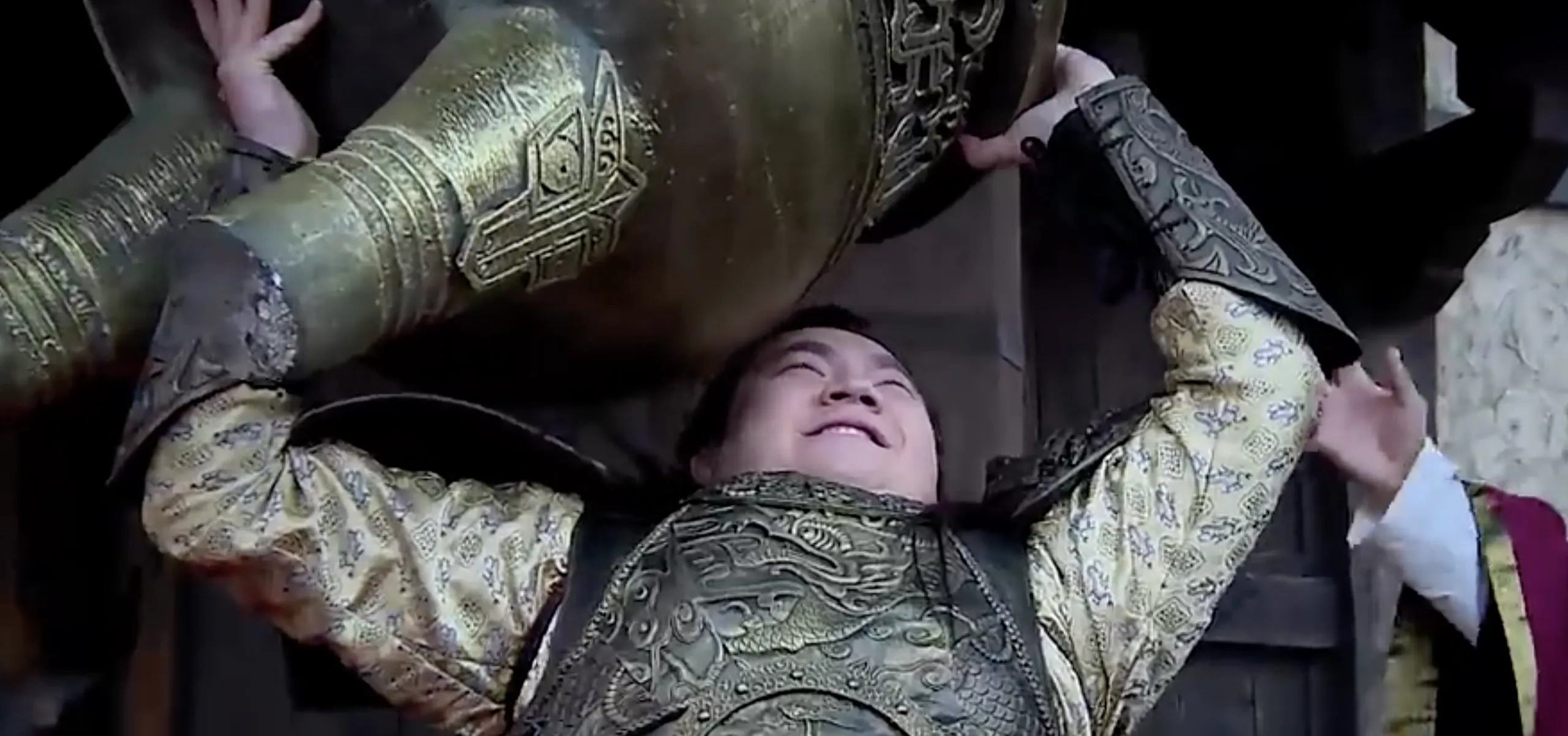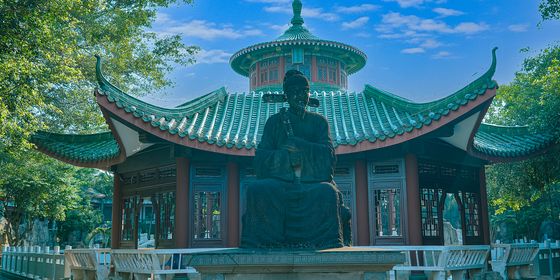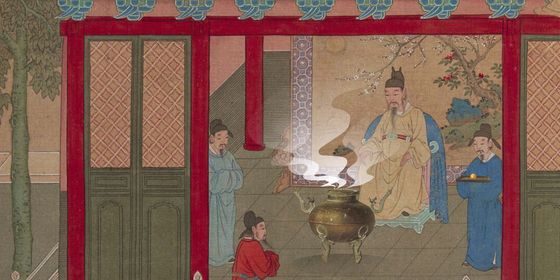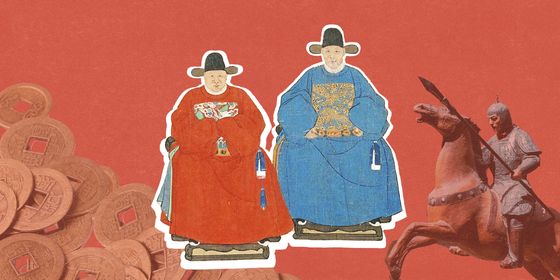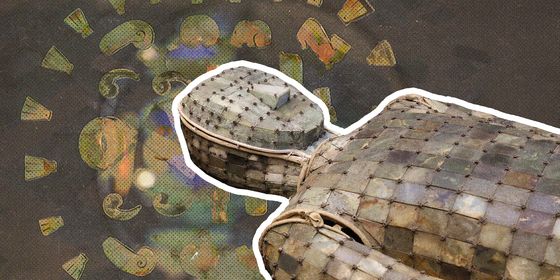From falling into a toilet to being struck by lightning, these are the weirdest deaths ever to befall imperial Chinese rulers
Being in charge of an empire is a risky job, just ask China’s ancient rulers. From Qin Shi Huang, China’s first emperor who founded the Qin dynasty (221 – 206 BCE), to Puyi, the last emperor of the Qing dynasty (1616 – 1911), Chinese history counted over 400 emperors in total, and many more kings, dukes, and warlords besides; yet few of them lived to old age or enjoyed a natural death.
Though it was customary to wish emperors “万岁 (wànsuì, long living or ‘ten thousand years’),” most rulers of China’s territory didn’t enjoy longevity. In fact, less than 50 percent of emperors lived to be over the age of 50, and only 30 made it to 60 years old. The average length of a reign for imperial rulers was only around five years, with illness, assassinations, and rebellions constantly threatening a miserable end. But some met their demise in scarcely believable circumstances, whether struck down by lightning or murdered for making a casual joke: Here, TWOC introduces the most extraordinary deaths suffered by rulers throughout China’s imperial history:
King Wu of Qin crushed by a bronze pot
Ying Dang (嬴荡), a warlord who ruled the State of Qin during the Warring States period (475 – 221 BCE) and was known as King Wu of Qin, succumbed as a result of overconfidence in his own strength when trying to lift a giant bronze pot.
According to descriptions in the Records of the Grand Historian (《史记》), a history text by Han dynasty (206 BCE – 220 CE) scholar Sima Qian (司马迁), Ying was an extremely strong man and was even more proud of the fact. One of his favorite pastimes was competing against others in tests of strength, and he promoted many other burly men to high ranking positions in his administration.
In around 307 BCE, Ying challenged his friend Meng Yue (孟说) to a lifting contest. The object they were to lift was a huge three-legged bronze cooking vessel known as a 鼎 (dǐng). This was no ordinary cooking pot, however; it was apparently cast on the orders of Yu the Great, the legendary king who supposedly initiated the Xia dynasty (c.2070 – 1600 BCE). Yu is said to have had nine giant ding cast, each to represent a certain region under his rule. Since then, the ding became an important symbol of imperial power in Chinese culture, and lifting the ding held great symbolic significance to King Wu.
The king and Meng decided to lift one of Yu’s nine ding: the “龙文赤鼎 (lóng wén chì dǐng, red ding with dragon patterns).” But as Ying began his attempt to lift the mighty vessel, his strength gave out, the ding slipped from his hands and landed on his leg, crushing it. The king died of his injuries not long after.
Court officials blamed Meng, as the other participant in the contest, for the king’s demise, and he was sentenced to death along with his entire family. No records show whether Meng managed to lift the ding.
Duke Jing drowns in a latrine pit
The rule of Ji Ju (姬据), who was head of the State of Jin during the Spring and Autumn Period (770 – 476 BCE) and known as Duke Jing of Jin, was unremarkable, but he is remembered for his bizarre and mysterious death in a toilet.
According to The Commentary of Zuo (《左传》), a narrative history covering the period from 722 to 468 BCE, the duke once had a nightmare about a ghost who blamed him for the death of his descendants. The duke was so afraid that he invited a witch doctor to his court to seek advice. The witch doctor didn’t ease the king’s anxiety, however, and on hearing about the dream said only: “You will not live to eat this year’s new wheat.” The duke soon fell seriously ill, and even the most famous physicians in the land couldn’t cure him.
But though he was sick, when the wheat harvest season arrived, the duke still lived. Relieved and confident again, the duke ordered his subordinates to use some of the freshly harvested wheat to make him porridge, and called for the witch doctor to observe that he had survived the harvest and that the prediction had been wrong.
He duly ate the porridge and had the witch doctor executed, but soon after the duke began to suffer from discomfort in his bowels and felt bloated. He rushed to the toilet, fell into the latrine pit, and drowned in the filth.
King Wuyi struck down by lightning
It’s widely believed that King Wuyi (武乙), the 27th ruler of the Shang dynasty (1600 – 1046 BCE), was killed via divine intervention because of his sinful ways.
According to the Records of the Grand Historian, Wuyi deliberately insulted the gods by filling a leather bag with blood, throwing it into the air (toward the heavens, where the gods resided), and shooting it with an arrow–he called this provocation “shooting heaven (射天).” He also made figurines of gods out of wood and clay and staged mock battles against them; another act of disrespect. Perhaps he provoked the wrath of the gods, because on a hunting trip in 1113 BCE, he was suddenly struck by lightning and killed instantly.
Emperor Xiaowu murdered because of a joke
Sima Yao (司马曜), who ruled as the Xiaowu Emperor of the Eastern Jin dynasty from 327 to 396, survived many major attacks against his territory before being murdered for what seemed an innocent joke. Under his reign, the Eastern Jin survived a major attempt by the Former Qin, a rival state led by the Di ethnic group in north China, to destroy it. In 383, at the famous Battle of Fei River, 80,000 Jin troops defeated a Former Qin army of over 200,000. That battle ended the threat to the empire, but it didn’t protect the emperor for long.
According to the Book of Jin (《晋书》), an official historical text of the Jin dynasty compiled in the Tang dynasty (618 – 907), the Xiaowu emperor spent more and more time drinking and enjoying the company of women as his reign progressed. One day in 396, the emperor was drinking with one of his favorite concubines, Lady Zhang. After a few drinks, Zhang began to refuse the emperor’s offers of a top-up, prompting the emperor, also tipsy, to quip: “You are old now, so maybe you should yield your position. I want someone younger.”
But the joke was lost on Zhang, who, frightened and angry, waited for the emperor to fall asleep and then bribed the maids in his palace to smother him to death in his sleep with a quilt. Zhang had also bribed the palace eunuchs and other attendants to say the emperor had died suddenly in his sleep, and so the death was not immediately investigated in the aftermath.
Emperor Jingzong of Western Xia pays the price for stealing his son’s fiancée
Li Yuanhao, the founder of the Western Xia dynasty (1038 – 1227), was known as a successful emperor until his later years when he became increasingly tyrannical and obsessed with wine and women—an obsession which led him to steal his own son’s fiancée.
According to the historical text Extensive Continuations to Zizhi Tongjian (《续资治通鉴长编》), Li first met his son Prince Ninglingge’s fiancée in 1048 and was immediately besotted by her beauty. He spurned his relationship with his son and married the woman as his own empress. Prince Ninglingge was so outraged that he plotted to assassinate the emperor, but only succeeded in cutting off his nose in the attack. Though Li, who was known as Emperor Jingzong of Western Xia, survived the initial assassination attempt, he succumbed to his wound a few days later.





